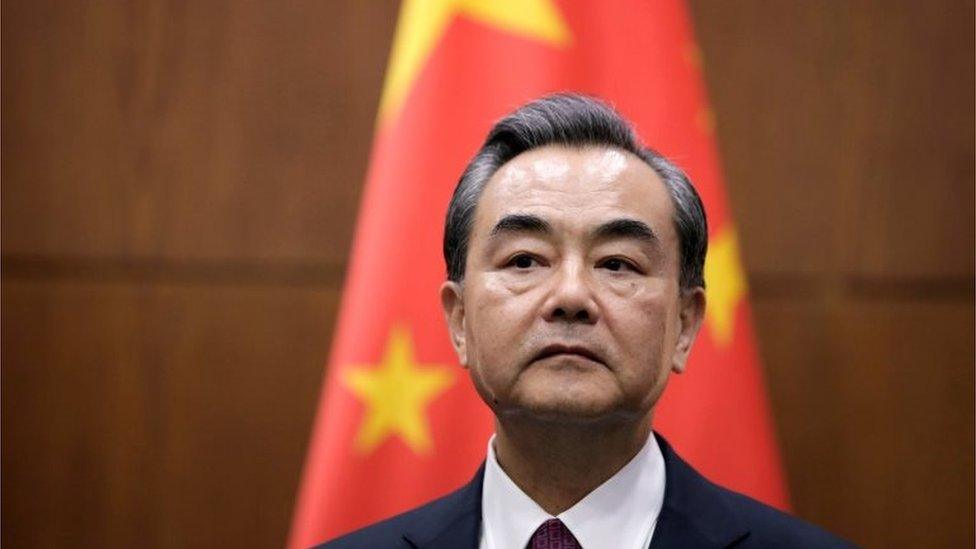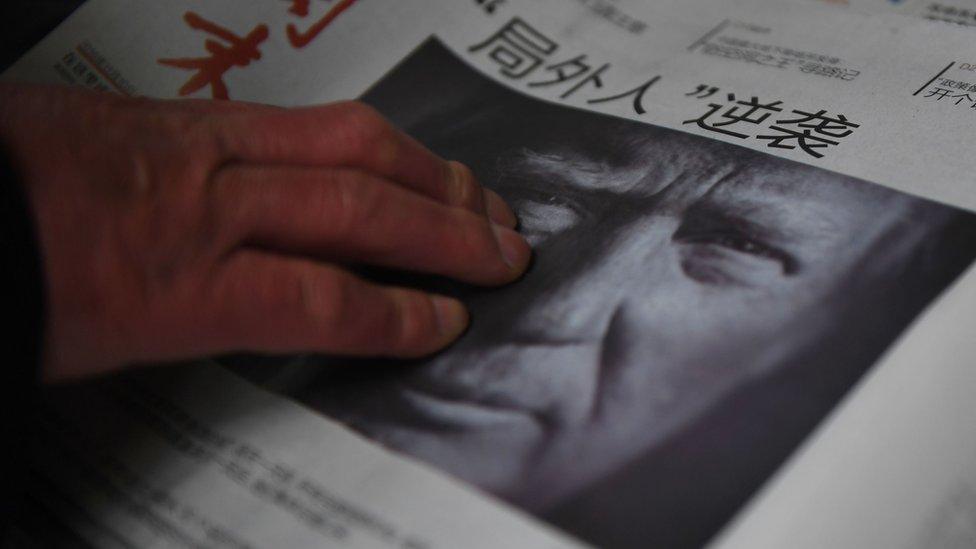Donald Trump hints US could end 'One China' policy
- Published
BBC News Sting
President-elect Donald Trump has questioned whether the US should continue its "One China" policy, sparking fury from Chinese state media.
Under the policy, the US has formal ties with China rather than the island of Taiwan, which China sees as a breakaway province.
This principle has been crucial to US-China relations for decades.
But Mr Trump said he saw no reason why this should continue without key concessions from Beijing.
His comments prompted an angry response from Chinese state media. An editorial in the Global Times warned him that the "One China policy cannot be traded".
It comes after he took a phone call from Taiwan's president, sparking a diplomatic row and a formal protest from Beijing.
It was in 1979 that the US broke formal diplomatic ties with the self-ruled island of Taiwan and switched recognition to China, ushering in a new era of deepening ties.
But even though formal diplomatic relations were broken, the US has maintained close unofficial ties with Taiwan over the years.
'Very disrespectful'
In the interview, broadcast by Fox News on Sunday, Mr Trump said: "I don't know why we have to be bound by a One China policy unless we make a deal with China having to do with other things, including trade."

Chinese Foreign Minister Wang Yi recently called the Trump-Tsai call a "petty trick" by Taiwan
Mr Trump also said China was not co-operating with the US on its handling of its currency, on North Korea, or on tensions in the South China Sea.
No US president or president-elect had spoken directly to a Taiwanese leader for decades. But in the Fox interview, Mr Trump said it was not up to Beijing to decide whether he should take a call from Taiwan's leader.
"I don't want China dictating to me and this was a call put into me," Mr Trump said. "It was a very nice call. Short. And why should some other nation be able to say I can't take a call?
"I think it actually would've been very disrespectful, to be honest with you, not taking it."
In the same interview, Mr Trump said he "doesn't believe" a CIA assessment that Russian hackers tried to sway the US presidential election in his favour.
'Resolute battle'
His comments prompted an angry editorial in Chinese state media outlet Global Times, known for its hawkish rhetoric.
Titled "Mr Trump please listen clearly: The One China policy cannot be traded", it labelled Mr Trump's move "a very childish rash act" and said he needed "to humbly learn about diplomacy".
It also called for a strong response, saying: "China must resolutely battle Mr Trump, only after a few serious rebuffs then will he truly understand that China and other global powers cannot be bullied."

China is closely watching Mr Trump's transition to president
China has so far been restrained in its official responses to Mr Trump, choosing instead to stress the importance of Sino-US ties.
Its foreign ministry has said it would not comment on his tweets, although it has labelled the Trump-Tsai phone call a "petty trick" by Taiwan.

Outlines of a strategy? Analysis by John Sudworth, BBC News, Beijing
Well it's not as if Donald Trump didn't tell us he was going to be tough on China.
Now, though, we are getting what looks like the outline of a strategy: the use of Taiwan as a bargaining chip.
It's a bold - some would say reckless - gambit, given that for China there is nothing vaguely negotiable about the island's status.
So far, at each stage - from Mr Trump's campaign rhetoric, to his protocol-breaching phone call with the Taiwanese president - China has been measured in its response, daring to hope that it has all been based on bluster or miscalculation.
That may now begin to change, with the blow-hard state-run tabloid, The Global Times, true to form in being the first to up the ante, with the talk of retaking Taiwan by force, or of arming America's foes.
We'll know soon enough whether Beijing's official rhetoric will follow suit.
Read more: